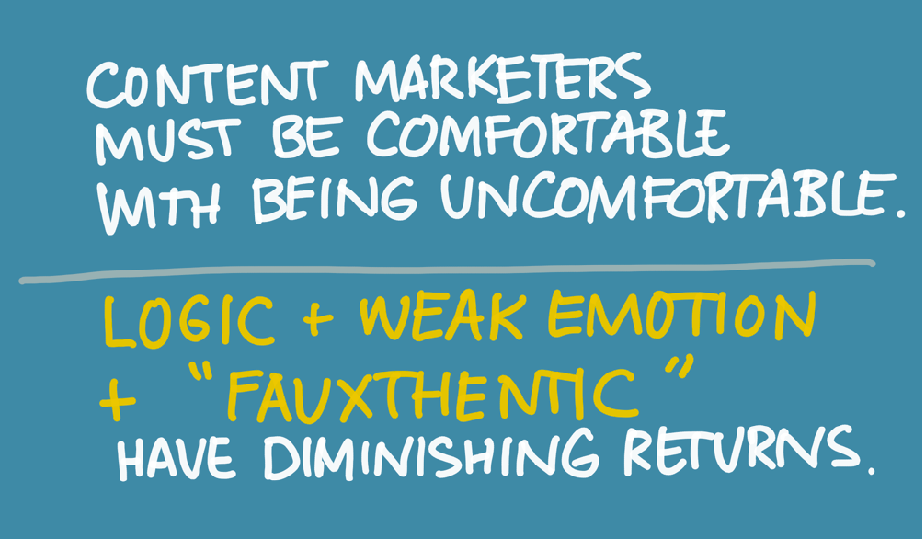
Leigh Reyes: Strong Emotional Content is Uncomfortable
Marketers need to be comfortable with being uncomfortable if we want to create content that will catch the attention of audiences who are more and more distracted, a creative agency head said. But we also need to earn the right to stimulate emotions with storytelling.“It’s hard to be memorable in this day and age when people aren’t even looking at you. Around the time that it takes for you to finish a sentence, their eyes are already drifting away to their phones,” Leigh Reyes, president and chief creative officer of MullenLowe Philippines, explained. She was speaking at the Philippine Content Marketing Meetup on April 17, the first event GetCRAFT hosted in 2018, about the need for marketers to have emotional literacy, more than just creative ideas and execution, to connect to their audience when storytelling.Beyond asking whether content addresses a strategy, satisfies institutional mandatories, and targets the right audience, we should also develop “the ability to say ‘Yes, this makes me feel something,’” Reyes said.Content we create with that mindset can lead to what Reyes referred to as tentpole moments, which she argued are often the only ones that stay with audiences and help build brands. “The everyday things that you do just spill,” she added.“If you cast your mind back to high school, you don’t remember each and every day. But there are tentpole moments... These are moments that are privileged, that are emotional, that have stayed with you,” Reyes said.Coming up with emotionally stimulating storytelling is scary, she admitted, but necessary. “If something makes you think a little bit harder and it’s making you think ‘Why am I liking this or why am I uncomfortable?’, don’t be afraid to go through that process.”Emotional literacy also involves recognizing that it’s no longer enough to have catchy content and repeat it over and again. “Details matter if they’re relevant to a story. Simple details that are repeated but not connected will be difficult for the brain to retrieve,” Reyes said.She also urged marketers to stop thinking of brands as memorable names. “This is where a lot of storytelling woes come in: when marketers ask for more brand mentions in the hope that it will result in better brand awareness. It does not; usually it results in irritation,” she noted.What we need to do, Reyes said, is “make deposits of goodwill” in the form of authentic stories told consistently using a distinct voice. She used as an example the way we make new friends, and wait until a certain comfort level before telling acquaintances about personal stories.“You’re taken aback when someone you don’t really know starts talking to you about your life story. TMI, too much. If you try bringing it down to how humans relate to each other, you will get a sense of how brands need to behave and tell stories,” Reyes said.The same is true when in comes to storytelling for brands. Besides time, we need to invest media budgets. “You don’t say, let’s make a heart-tugging video and attach it to this non-famous brand in the hope that it works... You need to earn the right to behave that way,” Reyes said.
